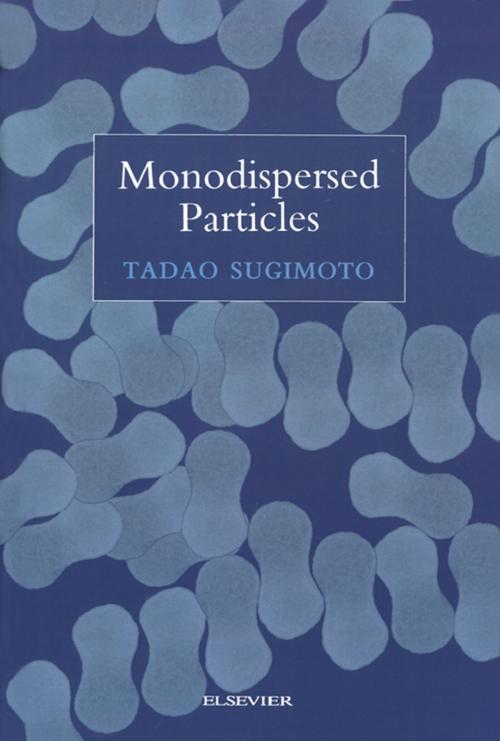Monodispersed Particles
Nonfiction, Science & Nature, Science, Chemistry, Inorganic, Technology, Engineering, Chemical & Biochemical| Author: | Tadao Sugimoto | ISBN: | 9780080536965 |
| Publisher: | Elsevier Science | Publication: | January 25, 2001 |
| Imprint: | Elsevier Science | Language: | English |
| Author: | Tadao Sugimoto |
| ISBN: | 9780080536965 |
| Publisher: | Elsevier Science |
| Publication: | January 25, 2001 |
| Imprint: | Elsevier Science |
| Language: | English |
This is the first comprehensive book for all aspects of monodispersed particles, consisting of four parts: Part 1 for the fundamentals of the elementary processes; Part 2 for the preparation of monodispersed particles, including the general principles, explanations of almost all known monodispersed systems on the basis of their classification, and techniques for controlling their mean size, shape, internal structure, composition, heterojunction, surface modification, etc.; Part 3 for the analytical methods for the formation processes and the characterization of monodispersed products; Part 4 for applications of monodispersed particles to fundamental studies and practicle uses, such as photographic materials, ceramics, catalysts, magnetic recording materials, pigments, cosmetics, biological and medical devices, etc.
This book not only covers the most of known uniform particles, including inorganic and polymer particles and their composites, from nanometers to a few hundreds of micrometers, but also compiles numerous references about 2000.
While this book is organized from the fundamentals to the ultimate levels, the text is replete with new theories, developed for this book, and novel ideas of the author's own interpretation on the formation mechanisms throughout the whole volume. In this sense, this is a unique book, as entirely different from ordinary textbooks.
Since the functions and dynamic behaviours of particles strongly depend on their size, well-defined monodispersed particles are ideal particulate materials for advanced devices as well as models for fundamental studies of colloid science. This may be the sheer reason for the persistent demands for the advent of a comprehensive book focussed on this subject.
This is the first comprehensive book for all aspects of monodispersed particles, consisting of four parts: Part 1 for the fundamentals of the elementary processes; Part 2 for the preparation of monodispersed particles, including the general principles, explanations of almost all known monodispersed systems on the basis of their classification, and techniques for controlling their mean size, shape, internal structure, composition, heterojunction, surface modification, etc.; Part 3 for the analytical methods for the formation processes and the characterization of monodispersed products; Part 4 for applications of monodispersed particles to fundamental studies and practicle uses, such as photographic materials, ceramics, catalysts, magnetic recording materials, pigments, cosmetics, biological and medical devices, etc.
This book not only covers the most of known uniform particles, including inorganic and polymer particles and their composites, from nanometers to a few hundreds of micrometers, but also compiles numerous references about 2000.
While this book is organized from the fundamentals to the ultimate levels, the text is replete with new theories, developed for this book, and novel ideas of the author's own interpretation on the formation mechanisms throughout the whole volume. In this sense, this is a unique book, as entirely different from ordinary textbooks.
Since the functions and dynamic behaviours of particles strongly depend on their size, well-defined monodispersed particles are ideal particulate materials for advanced devices as well as models for fundamental studies of colloid science. This may be the sheer reason for the persistent demands for the advent of a comprehensive book focussed on this subject.















